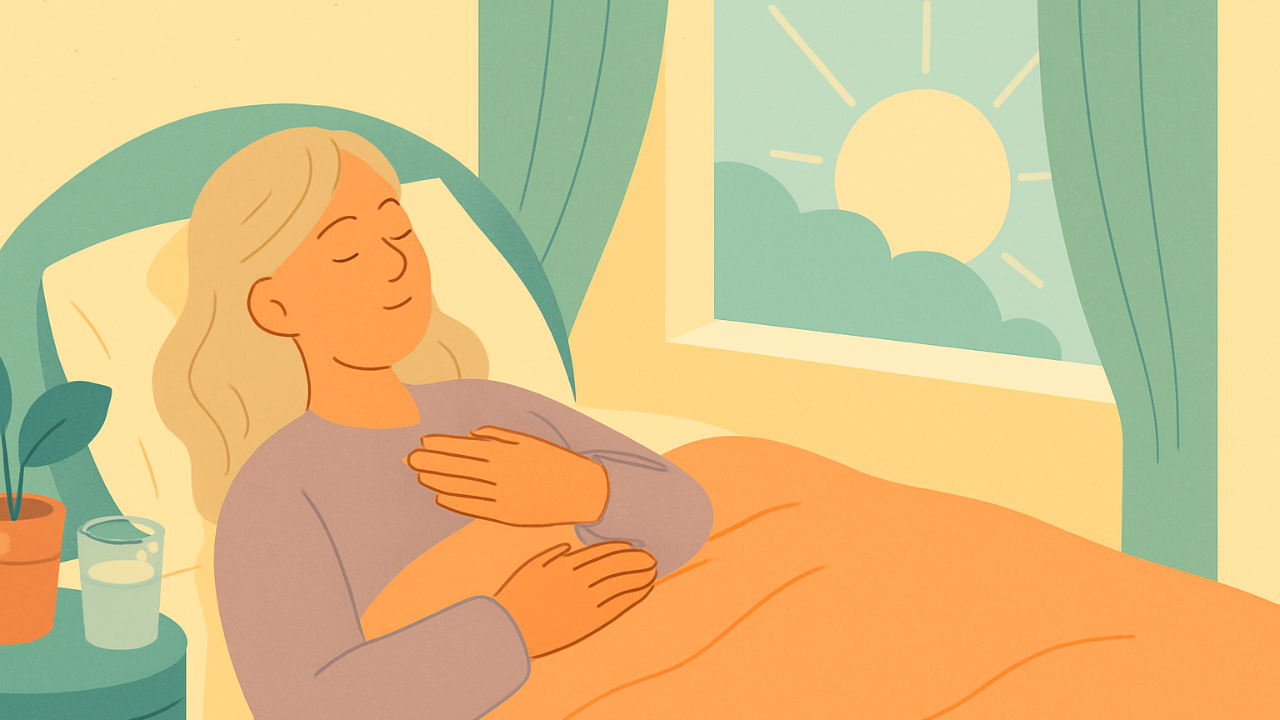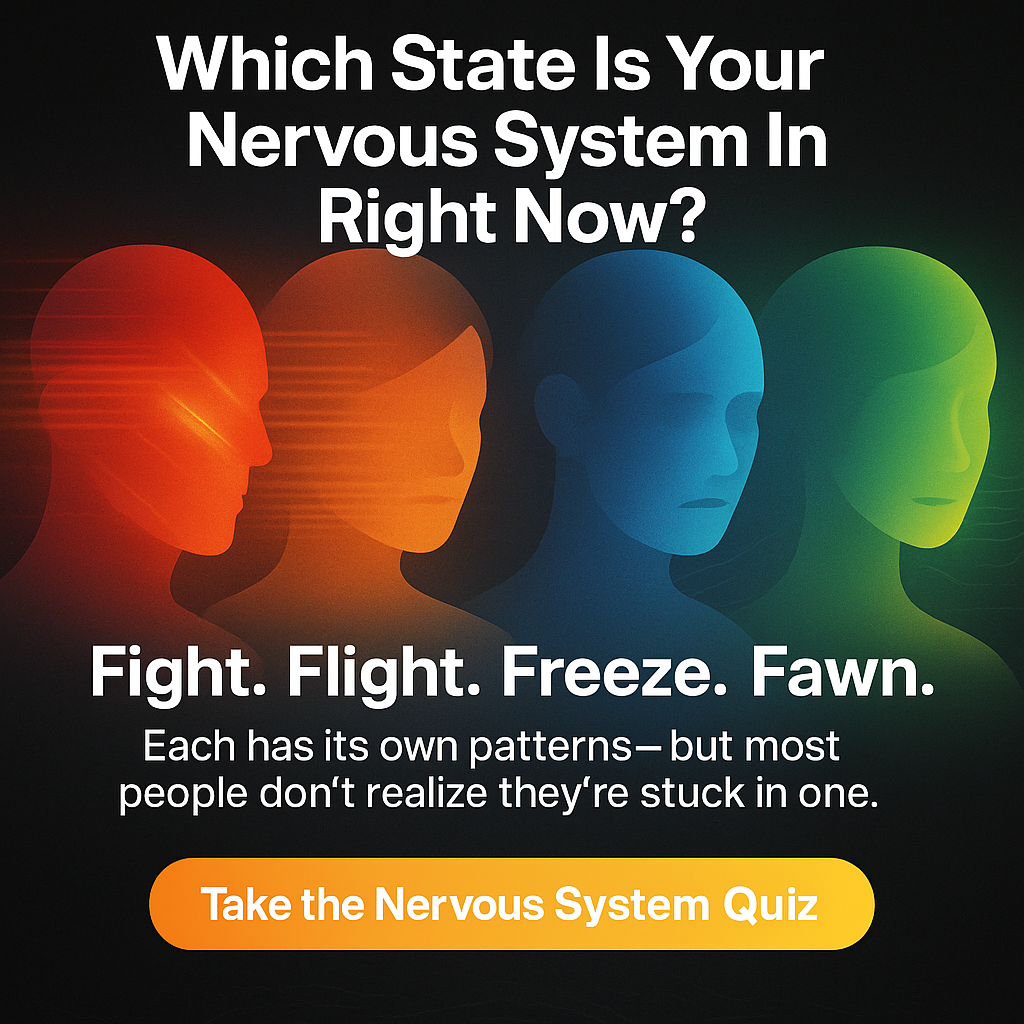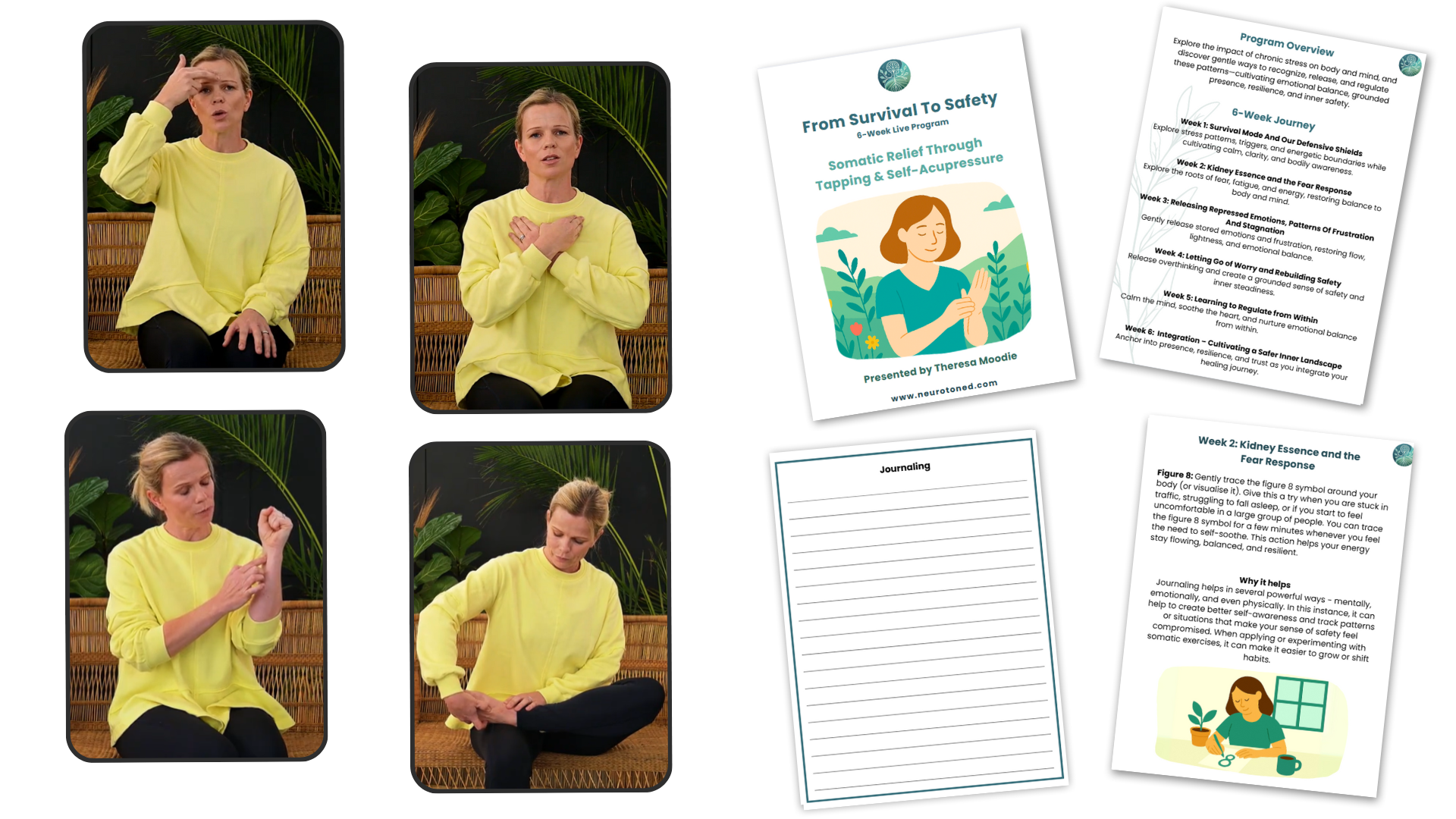
Somatic Tools for Morning Anxiety
When You Wake Up Already Anxious
You open your eyes and your heart is racing. Thoughts rush in before your body even moves.
That’s morning anxiety.
It can feel like waking into a fight you didn’t agree to. But you’re not broken. Your nervous system is still carrying yesterday’s stress chemistry.
Before you reach for your phone or coffee, pause here.
You can calm your body before the day even begins.
Take the Stress Loop Quiz to learn which survival pattern—fight, flight, or freeze—might be most active when you wake.
What’s Actually Happening in Morning Anxiety
Cortisol, the body’s natural wake-up hormone, rises sharply in the morning. For a nervous system that’s been running on high alert, that normal surge can feel like panic.
You might feel your stomach tighten, breath shorten, or dread appear out of nowhere. This is your body trying to prepare for danger that isn’t actually there.
Morning anxiety often lives in the same stress loop described in Why Do I Always Feel Ready to Jump Out of My Skin for No Reason?. It’s not “just in your head,” it’s your body’s learned way of keeping you safe.
Somatic tools help your system remember that safety is possible right now. They use the body’s own language—touch, breath, and small movement.
1. Grounding Before Getting Up
Before you move, place one hand on your chest and one on your belly.
Feel the weight of your body on the bed. Whisper softly, “I’m safe to start slow.”
This hand-to-heart contact communicates safety through the vagus nerve. You can learn more in Vagus Nerve Massage Techniques for Beginners, a simple guide to calming touch.
If you want a structured routine, try A 10-Minute Nervous System Reset for Overwhelm You Can Do Anywhere. Many people find it helps anchor the day before stress takes over.
2. Gentle Shaking to Release the Night
When adrenaline builds overnight, your muscles can wake tense.
Stand beside your bed and let your arms and legs shake softly. Imagine brushing off static from your body.
This light shaking can discharge leftover stress signals, similar to what animals do after danger.
If shaking feels awkward, roll your shoulders or stretch slowly instead.
You can also explore Pendulation: A Simple Somatic Exercise to Calm Your Nervous System, which teaches how to move between tension and calm in a controlled way.
3. Orienting Through the Senses
Look around your room. Name three things you see, three things you hear, three things you can touch.
This small act of orienting brings your attention from imagined threat back to the present.
It’s a simple, evidence-informed method used in Grounding During Panic Without Talk Therapy: A Gentle Guide You Can Use Anywhere.
If you notice yawns or sighs as you do this, that’s a sign of your parasympathetic system turning back on—the body’s “rest and digest” mode.
4. Breath That Doesn’t Backfire
Not everyone finds deep breathing soothing. If slowing your breath makes you feel more trapped, you’re not alone.
Many people experience this, as explored in Why Deep Breathing Makes Me More Anxious, And What To Do Instead.
Try sighing instead of structured breathwork. The “physiological sigh” (two short inhales, one long exhale) naturally releases carbon dioxide and calms the vagus nerve without creating pressure.
5. The 7-Day Morning Reset
Day 1–2: Hand on heart grounding before you move.
Day 3–4: Add gentle shaking.
Day 5–6: Practice orienting with sight and sound.
Day 7: Combine your favorite two techniques.
Take the Stress Loop Quiz at the end of the week to see how your patterns are shifting.
When You Feel Stuck
“I wake up already panicking.”
Start with touch instead of breath. Touch anchors you before thought can spiral.
“I can’t relax even after trying these.”
Your body might still be in a protective loop. Read How to Reset Your Nervous System After Trauma for a full, step-by-step re-regulation plan.
“My anxiety spikes again after coffee.”
Delay caffeine for 30 minutes and hydrate first. Even small changes like Hydration for Nervous System Regulation can reduce stress chemistry in the morning.
A Gentle Closing
Morning anxiety isn’t weakness. It’s your body remembering to protect you.
The work isn’t to stop it instantly, but to teach it safety, one morning at a time.
Choose one somatic tool that feels kind and practice it daily for a week.
Small shifts count—warmer hands, slower breath, or a softer gaze mean your system is learning trust again.
Take the Stress Loop Quiz and discover which pattern might be shaping your mornings.
Disclaimer: This article is educational and not medical advice. If you have health concerns, consider speaking with a qualified professional.
More Gentle Reads
Discover Your Vagal Tone
Find out how dysregulated your nervous system is and get your personalized roadmap to feeling calm, energized, and in control


